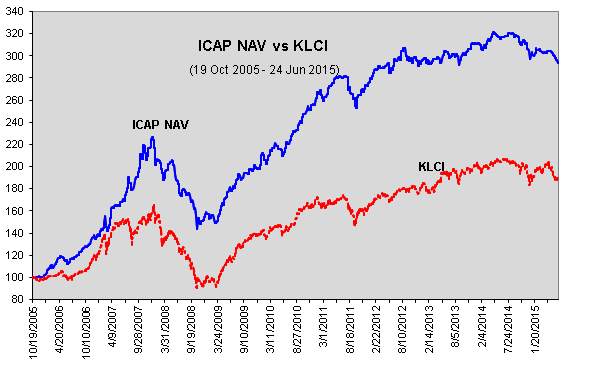Buying growth with a broad-brushed index approach is a formula for underperformance, but some smart choices can lead to outperformance.
Value companies
A good value investment will rise in price because the market will eventually take notice of it - either because people become more widely aware of its performance or because they recognise that its problems are being corrected.
As the market corrects its earlier impressions, the stock rises, sometimes dramatically.
If it is to continue to rise, however, the company has to do more than show it is worthy of recognition. It has to perform ... and grow.
Some "value" investments actually have great growth potential, while many will at best turn in tepid growth even if all goes well.
Growth companies
The best growth companies, however, will achieve phenomenal expansion.
And the very best can keep it up for years, letting you grow wealth while deferring taxes.
That kind of long-term, high growth is what creates 20-baggers an even 100-baggers.
A single investment like that can transform your portfolio - your whole financial future, in fact.
And you are unlikely to find such a company without identifying extraordinary growth potential.
These businesses aren't just looking to succeed in an established industry. They want to shake things up.
Two Catches
1. Rapid growth usually doesn't last long.
Some companies mange to grow sales at an exponential rate (over 100%) for a year, maybe even several. But maintaining that pace eventually becomes impossible.
If they are successful, companies naturally mature to a state of slow growth.
They evolve into the kind of large, steady companies that offer steady, but usually not large, returns.
Using a growth strategy means finding companies that can sustain extraordinary growth longer than the market realises and expects, either because you have caught it early in its growth cycle, or because it has such strong structural advantages that it maintains a dominant position in its industry.
2. The market tries to anticipate the future.
You may have heard about companies being "priced" for future events, including an expectation that future earnings will be a lot better than the ones you see today.
Sometimes predictions are too rosy; sometimes they underestimate what a company can do.
When they are too optimistic, high-priced stocks crash down to earth.
When they are too cautious, an "expensive" stock can keep rising sometimes for years.
We want to find the latter.
Comments:
If you own equal amount of ten stocks and one drops 50%, your portfolio goes down 5%.
If you own equal amount of ten stocks and one goes up 500%, your whole portfolio increases in value by 50%. From just ONE stock.
You can apply that logic on whatever scale you like - a concentrated portfolio of just a few stocks or a less-volatile portfolio of 100 stocks.
With diligence, patience and the right approach, you will find stocks that go up 500% or more.
Of course, you will also pick some that go down 90%.
But is it not true that value stocks beat growth stocks? Yes, they do ... broadly speaking. Unless, that is, you pick the right growth companies.
These rapid growth companies are a part of your broader approach to wealth creation.




